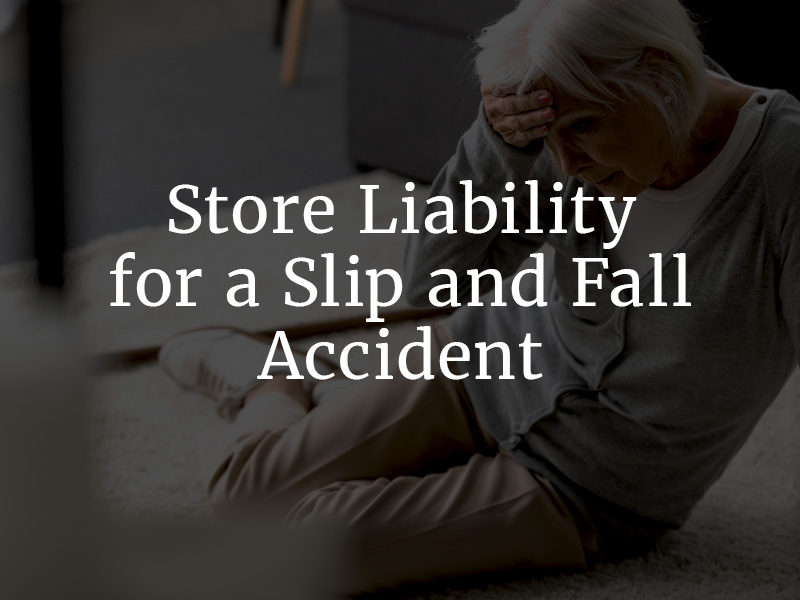Store Liability for a Slip and Fall Accident
Slip and fall accidents send hundreds of thousands of people to emergency rooms around the U.S. each year. Slip and falls can cause hip fractures, wrist sprains, concussions and other serious injuries. Many victims do not realize they could have grounds for injury lawsuits after suffering slip and fall accidents in stores or shops. It is a storeowner’s duty, however, to reasonably prevent slip and trip accidents from injuring customers. If you recently slipped and fell at a store in San Diego, the corporation or property owner could owe you a settlement. Contact Liljegren Law Group’s San Diego slip and fall lawyers today, for a free consultation.

What Are Some Examples Where a Store Can Be Liable for a Slip and Fall?
Store liability for a slip and fall accident deals with the legal doctrine of premises liability. Premises liability laws state a property owner will be legally responsible for what happens on his or her property. It is the owner’s duty, therefore, to use due care to prevent accidents. What qualifies as due care depends on the situation. If you were a customer, for example, the store would have owed you the highest standards of care. A store could be liable for a customer’s slip and fall in many situations.
- Failing to post wet floor signs after a spill or in bad weather.
- Waxing or polishing the floor without warning customers.
- Negligently failing to clean spills or food debris.
- Ignoring customer complaints about a spill or hazard.
- Failing to inspect a premises for water leaks.
- Waiting too long to schedule floor or property repairs.
- Failing to sweep leaves from places customers walk.
A store may face liability for a slip and fall accident if another storeowner in the same circumstances would have done something differently, such as cleaned the spill or posted a warning sign before the fall. If another reasonable and prudent storeowner would most likely have prevented your injuries, the store where you fell could be liable.
What is a Store’s Duty to Maintain Safe Premises?
The duty to maintain a safe premises falls on any store that opens its doors to the public. Inviting customers and guests onto the property to shop automatically comes with responsibilities to maintain a reasonably safe premises. These guests are invitees, the type of guest that demands the highest standards of care from a property owner. The duties of care a property owner owes to invitees are threefold.
- Inspecting the property for unknown or hidden hazards.
- Repairing known hazards within a reasonable amount of time.
- Warning invitees of existing or recurring hazards.
Obstacles, elements or floor defects that could cause slip and fall accidents are hazards against which a storeowner must reasonably protect customers. If one store owner would have noticed a spill and cleaned it up within 20 minutes, for example, another could be liable for a slip and fall accident related to the spill. Identifying a storeowner’s duties of care is one of the first steps toward settling.
What are Examples of In-Store Injuries?
When many people picture slip and fall accidents, they imagine minor bumps and bruises. The reality of a fall, however, can be much worse. Falls can cause major and even fatal injuries. One in five falls cause serious injuries, according to the Centers for Disease Control and Prevention. Examples of potential in-store injuries from falls or other accidents include broken bones, lacerations, concussions, traumatic brain injuries, back injuries, spine injuries, neck injuries and soft-tissue injuries. No matter what types of injuries you suffered in a store slip and fall accident, you could have grounds for a lawsuit in California.
Call a Slip and Fall Attorney
A slip and fall accident attorney in San Diego could review your case for free and help you decide whether you have grounds to file a lawsuit against a store owner or another party for negligence. Then, an attorney could help you fight for fair financial compensation from the negligent or careless party. A successful suit could lead to damages for your pain and suffering, humiliation, anxiety, legal fees, medical expenses, lost wages and more. Speak to a lawyer today for more information.

